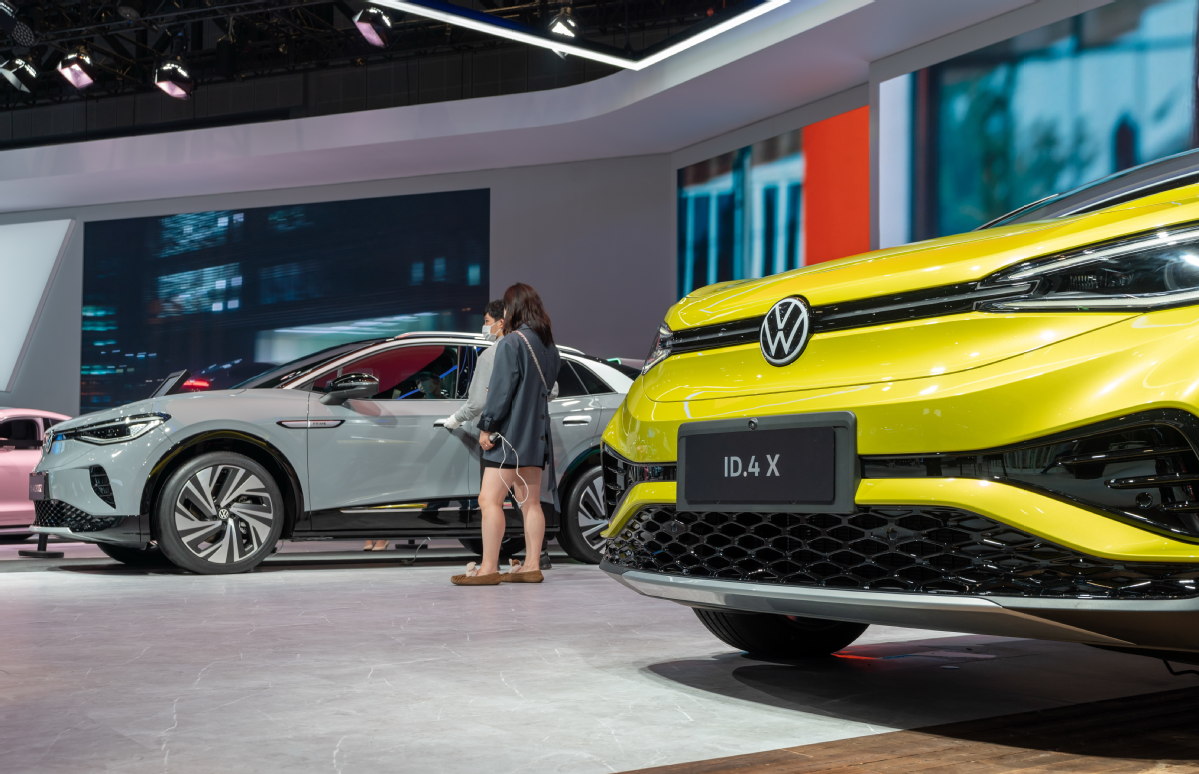Largest market for EVs is on a roll
By LI FUSHENG | China Daily | Updated: 2021-02-08 09:08

Volkswagen and other volume brands are targeting a lower price point. "We are Volkswagen, which means cars for the masses, not for the millionaires," said Woellenstein.
The ID.4 model, which started presales in late January, is priced starting from 199,900 yuan. Buick's Velite 7, an electric SUV produced by General Motors, is selling at below 200,000 yuan as well.
Chinese carmakers, which are the first movers in terms of transition to making electric vehicles compared with international ones, are seizing the opportunity to improve their branding and products.
BJEV, the new energy arm of State-owned BAIC Group, has established a brand called Arcfox, whose model sells at a starting price of 241,900 yuan, basically the level of Tesla's Model 3.
GAC Motor's Aion sees Tesla as its rival as well. Aion President Gu Huinan said it will launch a model that will have a driving range of 1,000 km on one charge this year.
Geely, which owns Volvo, unveiled its dedicated EV platform late last year. The carmaker said it is developing 16 vehicles on the platform and some of them will roll off the assembly line this year.
"China's market, due to its huge size, offers opportunities for brands at different levels, especially the volume car brands," said Zhang Yongwei, vice-president of think tank China EV 100.
The vast potential has piqued the interest of investors. Companies in the NEV industry raised a combined 129.21 billion yuan last year, according to Qcc, an enterprise credit rating system. That was the first time that the sector's annual financing exceeded 100 billion yuan and marked a surge of 159.4 percent over the 2019 level.
The bright prospects for the booming sector are attracting technology companies to jump on the EV bandwagon as well. Baidu and Alibaba, investors in Chinese EV startups such as Xpeng and WM Motor, are now trying their hand at car-making, believing their expertise in AI and big data can improve onboard infotainment functions.
In December, Baidu announced it will build a stand-alone car company to produce and market passenger vehicles that will feature its Apollo autonomous system as well as other core technologies.
"China has become the world's largest market for electric vehicles, and we are seeing EV consumers demanding next-generation vehicles to be more intelligent," said Robin Li, Baidu's CEO.
Alibaba started even earlier. In January its partnership with China's largest carmaker SAIC Motor debuted its first model, a sedan capable of wireless charging.
With a tap on the smartphone, the sedan can drive itself into the parking lot and stop the engine, and another tap can beckon it to come and pick the driver up at designated places, said the joint venture.
























